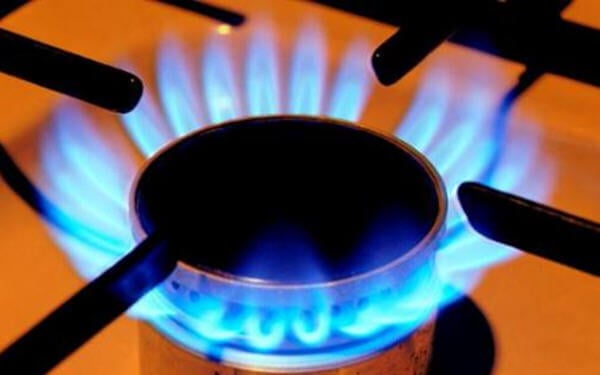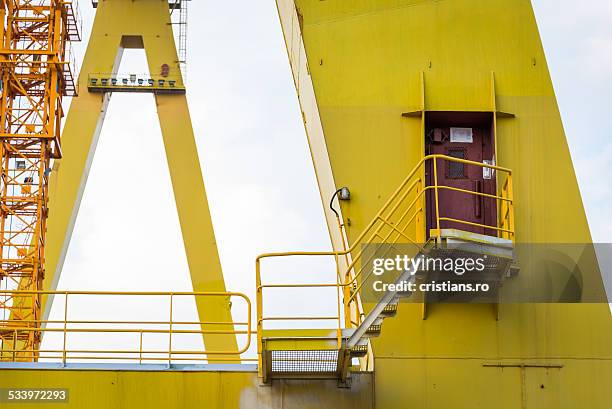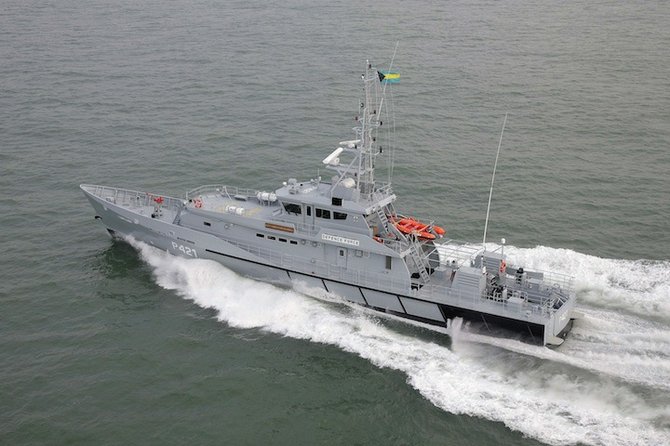Russia's Arctic Gas Exports: The Role Of European Shipyards

Table of Contents
The Demand for Ice-Class LNG Carriers
The Arctic presents unique challenges for shipping. Navigating these frigid waters requires vessels designed to withstand extreme conditions, far beyond the capabilities of conventional LNG carriers. The demand for ice-class LNG carriers is driven by several factors:
- Extreme weather conditions: Arctic shipping faces intense ice formations, sub-zero temperatures, and unpredictable storms, demanding robust vessel designs.
- Navigation difficulties: Icy waters significantly restrict maneuverability and require specialized navigation systems and icebreaker assistance.
- Robust hull designs and powerful propulsion systems: Ice-class LNG carriers need reinforced hulls capable of withstanding immense ice pressure and powerful propulsion systems to navigate through thick ice.
- Increased operational costs: The specialized design, construction, and operation of ice-class vessels result in considerably higher costs compared to conventional LNG carriers.
The global capacity for building these specialized ships is limited, making European shipyards key players in this niche market. The construction of these vessels requires a high degree of specialized engineering and manufacturing expertise.
European Shipyards' Expertise and Capabilities
European shipyards possess the technological expertise and experience crucial for constructing ice-class LNG carriers. Countries like Finland, Norway, and Germany have a long history of building vessels for operation in icy waters. Their contributions include:
- Advanced hull design and materials: European shipyards utilize advanced hull designs and high-strength materials to ensure the vessels can withstand the harsh Arctic environment. This includes the use of specialized steels and innovative construction techniques.
- Efficient propulsion systems: They develop and integrate efficient propulsion systems optimized for ice conditions, often incorporating powerful engines and ice-breaking capabilities.
- Extensive experience: These shipyards possess extensive experience in building and maintaining similar vessels, ensuring the quality and reliability of the LNG carriers.
- International safety standards compliance: European-built vessels adhere to stringent international maritime safety standards, prioritizing the safety of crews and the environment.
These contracts provide significant economic benefits for European shipyards, supporting jobs and boosting their technological leadership in the shipbuilding industry. The economic impact extends beyond the shipyards themselves, impacting related industries and local economies.
Geopolitical Implications and Sanctions
The involvement of European shipyards in Russia's Arctic gas projects carries significant geopolitical implications. The relationship is complex and influenced by evolving international relations, including sanctions imposed on Russia.
- Impact of sanctions: Western sanctions can significantly impact contracts and collaborations between European shipyards and Russian energy companies. This creates uncertainty and potential delays in project timelines.
- Ethical considerations: The involvement in Russian energy projects raises ethical considerations, particularly concerning the environmental impact and geopolitical ramifications of Arctic gas exploitation.
- Diversification of Russian partnerships: Russia may seek to diversify its shipbuilding partnerships, exploring options in countries less affected by sanctions. This could lead to increased competition for European shipyards.
- Geopolitical tensions: The ongoing geopolitical tensions influence future contracts, potentially limiting or restricting collaborations depending on international relations.
Alternative sourcing of ice-class vessels for Russia might include Asian shipyards, although the technological expertise and experience of European counterparts remain a significant advantage.
The Future of Arctic Gas Exports and European Shipbuilding
The long-term prospects for Russia's Arctic gas exports are tied to several factors. The future role of European shipyards will depend on the interplay of these factors and the evolving geopolitical landscape.
- Projected growth in Arctic gas production: Continued investment in Arctic gas exploration and production will likely increase the demand for ice-class LNG carriers.
- Technological advancements: Advancements in ice-class vessel design and technology will continue to shape the industry, potentially leading to more efficient and environmentally friendly vessels.
- Evolving geopolitical landscape: The geopolitical environment significantly impacts the feasibility and sustainability of collaborations between European shipyards and Russian energy companies.
- Increased competition: The potential for increased competition from Asian shipyards presents a challenge for European players.
The future of Russia's Arctic gas exports and the continued role of European shipyards remains intertwined with geopolitical realities and technological advancements.
Conclusion
European shipyards play a critical role in facilitating Russia's Arctic gas exports, leveraging their technological expertise in ice-class vessel construction. However, this relationship is fraught with geopolitical complexities, including the impact of sanctions and the ethical considerations surrounding Arctic development. The challenges and opportunities presented by the Arctic shipping environment are considerable, shaping the future of both Russia's energy strategy and the global LNG market. Further research into Russia's Arctic gas exports and the evolving role of European shipyards is crucial for understanding the future of global energy markets and the complexities of Arctic development. Understanding the dynamics of Russia's Arctic gas exports is vital for informed decision-making in the energy sector.

Featured Posts
-
 Stock Market Valuation Concerns Bof A Offers A Different Perspective
Apr 26, 2025
Stock Market Valuation Concerns Bof A Offers A Different Perspective
Apr 26, 2025 -
 Expert Opinion Espn Analyst Examines Deion Sanders Shedeur Sanders Draft Stock Claims
Apr 26, 2025
Expert Opinion Espn Analyst Examines Deion Sanders Shedeur Sanders Draft Stock Claims
Apr 26, 2025 -
 Turkish Desan In Talks To Acquire Romanian Shipyard Mangalia
Apr 26, 2025
Turkish Desan In Talks To Acquire Romanian Shipyard Mangalia
Apr 26, 2025 -
 Mission Impossible 7 Ignores Franchise History A Detailed Look
Apr 26, 2025
Mission Impossible 7 Ignores Franchise History A Detailed Look
Apr 26, 2025 -
 Engineer Soltan Kazimov Oversees Damen Csd 650s Maiden Voyage
Apr 26, 2025
Engineer Soltan Kazimov Oversees Damen Csd 650s Maiden Voyage
Apr 26, 2025
